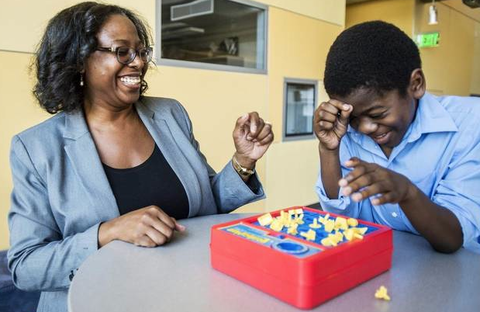
The joy of every pregnant woman is to give birth to a healthy child but sometimes life throws curve balls.
In most cases, the parents are not fully prepared whether emotionally or otherwise for the challenges that come with having a special needs child.
While it is important for parents – or guardians, relatives, caregivers – to know how best to handle children with special needs, it is also necessary that the parents should understand that having such a child will also have an effect on them. Such effects might be positive, or negative.
According to the National Mental Health Association and the Federation of Families for Children’s Mental Health (1993), parents who are caring for children with mental illness find it extremely difficult to get their own mental health needs met while trying to meet the mental health needs of their child.
So what does special needs mean?
Special needs is an umbrella term which can refer to a vast array of diagnoses and/or disabilities. Children with special needs may have been born with a syndrome, terminal illness, profound cognitive impairment, or serious psychiatric problems.
There are four major types of special needs children:
- Physical – muscular dystrophy, multiple sclerosis, chronic asthma, epilepsy, etc.
- Developmental – cerebral palsy, down syndrome, autism, dyslexia, processing disorders, etc.
- Behavioural/Emotional – Attention Deficit Disorder/Attention Deficit Hyperactivity Disorder, bi-polar, oppositional defiance disorder, etc.
- Sensory Impaired – Visually impaired, deaf, limited hearing, etc.
Here are some tips to help you cope if you have a special needs child.
1. Get Educated
In order to effectively take care of a child with special needs, parents need to be educated on what is required to be done. Parents need to be properly educated on how to take care of such children, especially in cases where the challenge is nerve-wracking. They (parents) need to be advised by experts.
Getting educated on the requirements for handling children with special needs would, ultimately, help parents to overcome some of the negatives that come with the situation.
2. Get support
Join a local or online support group, search for local and national groups that provide services, recreation, and information for families with special needs.
Find out about local, state, federal, or other programmes that may be available.
3.Written instructions
It will help your child and those who may need to care for them if they know exactly what has to be done each day. Keep a log of the food and drinks your child likes and dislikes, what time they wake up and go to bed, what time they need their medication and so on. Doing this will make life easier for your child and their carer.
4. Take care of yourself
Stay healthy for yourself and those you care for. Work to maintain your personal interests, hobbies, and friendships. Balance is important.
Set reasonable expectations about caregiving. This may lower stress and make you a more effective caregiver. Take a break. Short or long breaks can be helpful.
Taking care of a child with special needs requires a parent to have higher levels of patience and understanding. Because most children with special needs require specialised care, a parent needs to develop specific skills for caring for them.
5.Focus on what the child can do
You should always focus on what the child can do rather than what they cannot. This can help the child feel more normal. Whether it is a physical impairment, an activity or conduct disorder, or a learning disability, there are many services that can help parents in taking care of the child.
6. Be an advocate
Ask questions, and know your rights.
Become familiar with relevant legislation that relates to children with special needs, and know how and when to apply them to your situation.
Inform other caregivers of any special conditions or instructions. Always remind dental or medical staff of this information each time you visit.
Document the medical history and care issues of your family member with special needs, and keep this information current.
7.Plan your child’s future
Don’t forget to always ask yourself this question – “What will happen to my child after I die?”
You may want to plan for your child’s future and make sure things are in place in case they outlive you. If your child has a physical disability, they might need someone to help them with personal care or transportation.
If your child has learning disabilities, they may require specialist provisions such as sheltered housing, care homes or specialist nursing care.
8. Maintain hope, resist guilt, fear
It can be very hard for a parent that has a child with a disability. They might feel guilty as though they did something wrong when making the child or feel resentful at how much time and effort caring for the child takes. A parent has to go through a lot of development themselves when finding out that they have a child with special needs. There are many things a parent can think about when in that situation. It is important to maintain hope even through their fear and negative views.
9.Seek out other parents with special needs children
It can also be good finding other parents with children who have special needs and getting advice from them.
10. Make a will
Taking care of the question raised above requires that you leave a will behind. Writing a will can help you address the fears you may have about what will happen to your children when you die. You can write a will through a solicitor, or using a will-writing pack or online will-writing services.
You might have family or friends who could care for your child in an emergency, or who would be willing to look after your son or daughter if you die. If this is the case, you may want to make a will explaining your wishes for your child. It is also a good idea to let social services know in advance and to include them in an emergency care plan. If friends and family can’t help, speak to social services about the best options for your child.

















Leave a Reply